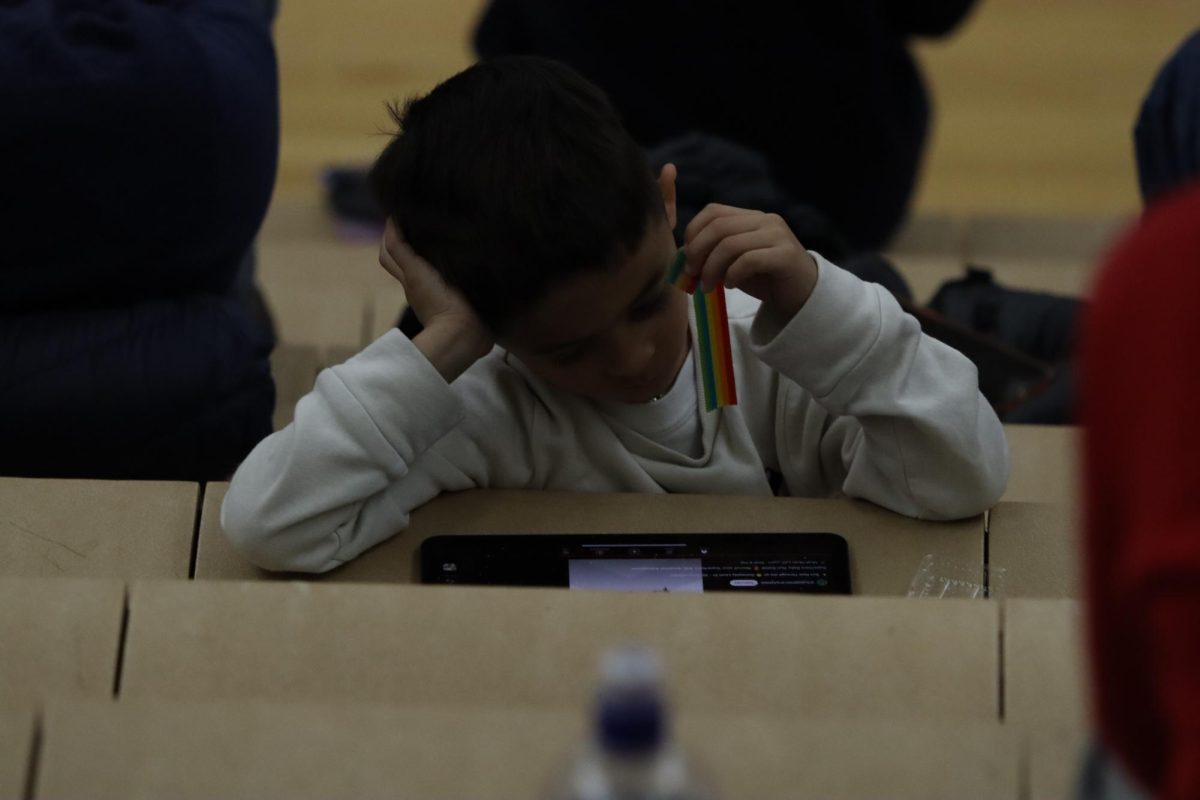TikTok and other social media platforms have begun using the term ‘brain rot’ to describe unintelligent behaviors, abnormal actions or immature vocabulary usage. The rise of ‘brain rot’ highlights youths’ depreciation of education and quality thought.
The Oxford definition of this term is “the supposed deterioration of a person’s mental or intellectual state, especially viewed as the result of overconsumption of material considered to be trivial or unchallenging,” yet internet culture defines brain rot as any content that is seemingly of low quality or value.
The internet’s light-hearted definition has caused individuals to lose sight of its true meaning and overuse the term. The familiarity of the expression has normalized younger generations’ lack of intelligence and emotional maturity. Individuals have even started to purposefully ‘act brain rot’ as a joke or to fit in with social media trends.
This behavior resonates most with teens and children who have started using the phrase to describe themselves or their peers. “My friends and I have started to refer to each other as brain rot when we are acting abnormal and it is really funny. It’s fun to watch brain rot TikToks with my friends and send them to each other,” said junior Isabelle Kramer.
Some individuals are beginning to call out this behavior, claiming it normalizes unintelligence among the youth and feeds the stereotype that the younger generations are incapable.
For example, users on TikTok have posted videos along the lines of ‘we thought we’d have flying cars by 2024, but we have this:’ in which they showcase kids acting ‘brain rot’. This depiction discredits the younger generation for their many accomplishments and stereotypes them under the umbrella of immature behaviors.
Brain rot videos can cause teenagers to struggle to focus for extended periods of time or retain quality information. “Our phones are melting our brains because when you watch a 5 second video that makes you laugh it incentivises you to continue scrolling. Also, we absorb more information in a short period of time due to social media platforms like TikTok, so when you watch 50 videos that are a couple seconds each you have just absorbed a ton of useless information. When your brain is overloaded by junk information it makes it a lot more difficult to retain important information at school or work,” said senior Ben Birkel.
The abuse of the phrase has allowed ‘brain rot’ to become the Oxford word of the year. In the past, the word of the year was sophisticated and educational, including words like prompt, vax and climate emergency.
The contagious power of social media is impacting society’s vocabulary. “Whenevers there’s new slang from TikTok my friends and I pick up on it and start to use it. A lot of the time the slang is super random and doesn’t make much sense but it’s still fun to say. The only people that understand what we’re saying are people who also see the same things on TikTok,” said junior Bella Chamberlin.
Brain rot has become so extensive that it has its own associated vocabulary. Words like skibidi toilet, rizz, fanum tax, sigma, alpha, ohio, glazing and big back fall under this category. Immature vocabulary like these brain rot terms is likely to cause people to assume individuals who use these words, even infrequently or jokingly, are less intelligent than those who use proper vocabulary.
Tik tok and other social media pushing young individuals to become accustomed to trends, regardless of how it makes them look. People would rather fit in with the current slang than educate themselves. These immature trends often go too far, creating harmful stereotypes and causing individuals to discredit the positive things happening outside of social media norms.










